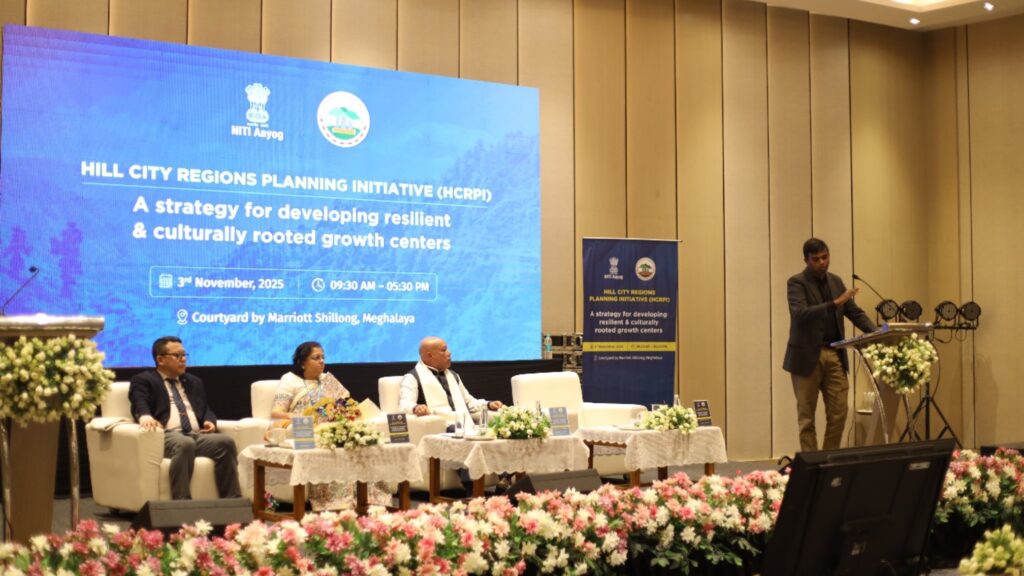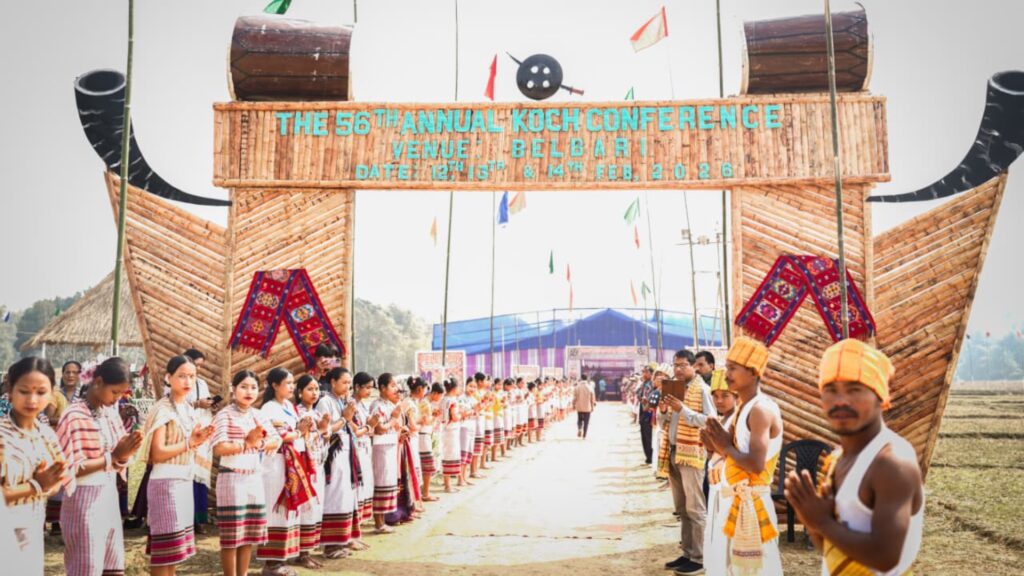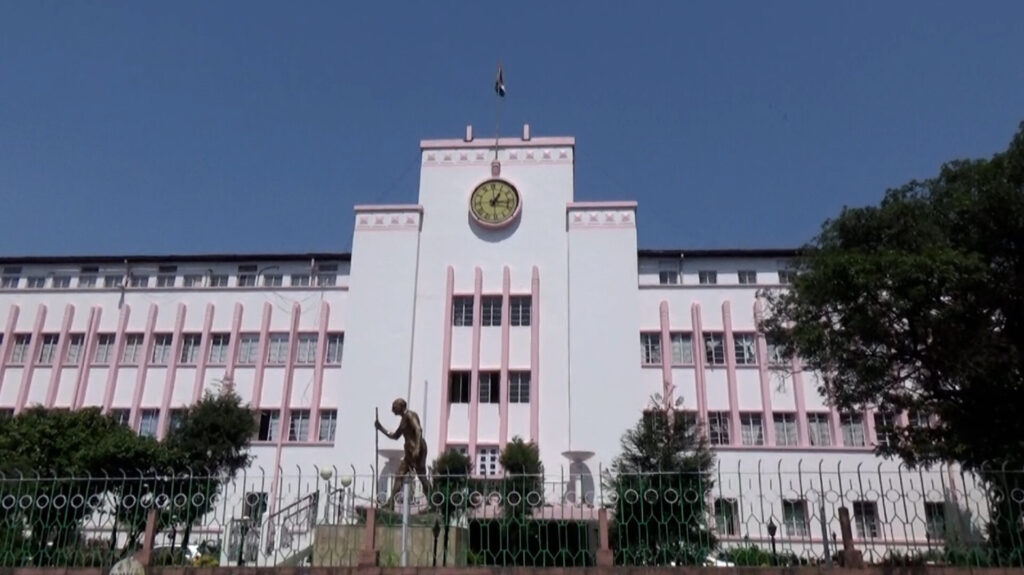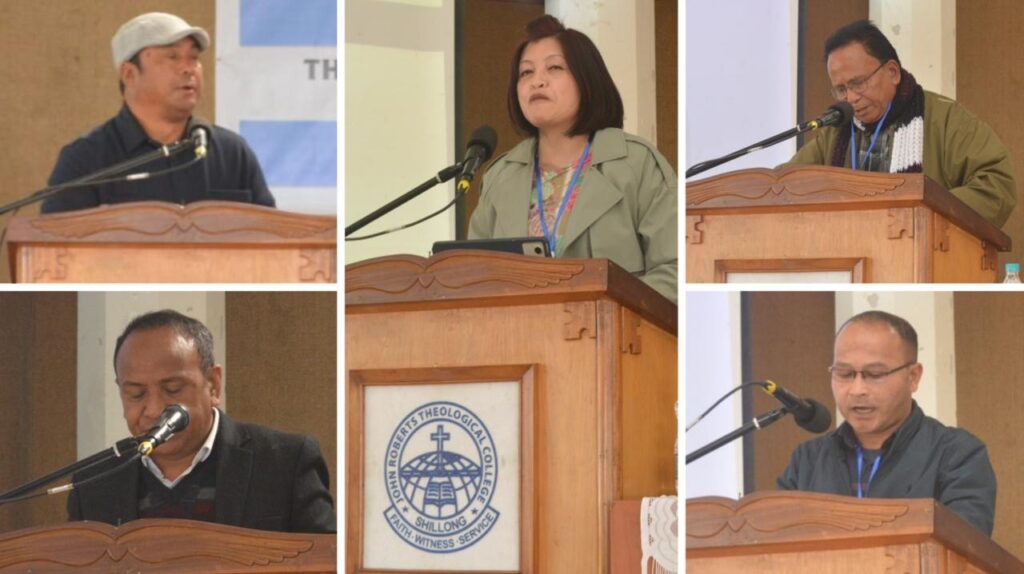Shillong, November 3 : In a major step towards shaping a sustainable future for India’s hill regions, NITI Aayog and the Government of Meghalaya jointly hosted a one-day workshop on the Hill Regions Planning Initiative (HCRPI) at the Courtyard by Marriott, Shillong. The event, titled “Developing Sustainable, Climate-Resilient, and Economically Vibrant Hill Cities,” brought together policymakers, experts, and senior officials to design a roadmap for resilient hill urbanization.
Sanbor Shullai, Minister for Arts and Culture, Government of Meghalaya, graced the event as Chief Guest. In his keynote address, he emphasized that hill cities, though rich in natural and cultural heritage, face distinctive challenges linked to terrain and climate. He hailed the initiative as a crucial step towards “sustainable and inclusive growth” inspired by Prime Minister Shri Narendra Modi’s vision for Viksit Bharat @ 2047. “Development and nature must move together,” he said, underscoring the need to balance economic growth, environmental protection, local entrepreneurship, and youth empowerment.
Delivering the welcome address, Vijay Kumar D, Commissioner and Secretary, Urban Affairs Department, described the initiative as “timely and apt.” He outlined Chief Minister Conrad K. Sangma’s goal for Meghalaya to rank among the top 10 states by 2032, with urban development listed among the government’s top priorities. “Our thought processes are evolving as we continue to strengthen urban governance,” he said, reaffirming the state’s commitment to holistic development under the Viksit Meghalaya agenda.
Anna Roy, Principal Economic Adviser and Programme Director, NITI Aayog, introduced the context of the day’s discussions. She explained that the HCRPI is a part of NITI Aayog’s State Support Mission and aims to formulate a “bespoke framework” tailored to the unique needs of hill cities. The roadmap will focus on long-term resilience, sustainability, and regional-scale urbanization, forming the basis for a comprehensive study developed jointly with hill states.
Representing the Northeastern Council (NEC), Som Kamei, Planning Adviser, emphasized urbanization as a “driver of growth” and highlighted the need for balance between sustainability and development. He assured NEC’s collaboration to integrate the deliberations with Vision 2047.
During the first session, Jagan Shah, CEO, The Infravision, presented the best global practices from different hill cities and identified challenges in infrastructure, mobility, and sustainable land use. Applying these concepts to Meghalaya, he highlighted key priorities like strategic eco-tourism, disaster resilience, and building regulations. Dr. Uday Bhonde, Sr. Program Specialist, NIUA, highlighted initiatives, including a ‘shallow aquifer management project’, presented a few climate action plans, and environmental indexes to facilitate the process. Snehit Prakash, Regional Director, Borda Asia, shed light on climate resilient planning for services, including climate action plans for small cities, stakeholder mapping, regional exchange, and knowledge transfer.
Following the first session, Prof. Arup Sarma, IIT Guwahati, delivered his talk on carrying capacity assessment and introduced the Sustainable Accommodation Framework, focusing on successful case studies and emphasizing on the idea of managing Meghalaya’s peri-urban areas to maintain sustainability. Prof. Mahua Mukherjee, HoD, Dept. of Architecture and Planning, IIT Roorkee, framed resilience as a prerequisite for growth. She talked about the last mile community resilience, addressed pillars to help citizens visualise plans, and move towards sustainability, participatory solutions. Tikender Singh Panwar, Former Deputy Mayor of Shimla, delivered the final talk on governance, policy, and financing frameworks. He discussed the requirement of a different developmental margin for hill regions and advocated for a terraced governance model which is grounded, layered, and ecological.
The workshop culminated into an interactive round-table discussion based on identification of priority research topics, pilot cities (brownfield and greenfield) and potential knowledge partners to facilitate different developmental ideas.
The event reinforces, Meghalaya’s commitment towards Vision 2047, emphasizing on planning, policy interventions, financing reforms, and legislative measures to enhance investment, improve quality of life and ensure inclusivity.








